 Oshida makes her mark and it looks like a swastika. 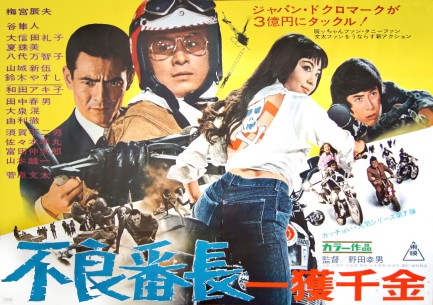
Above is a bo-ekibari style poster for the pinky violence actioner Furyô banchô: Ikkaku senkin, aka Wolves of the City: Fast Money. This piece is cousin to the standard sheet for the film we shared a couple of years ago. Just as when we showed you that one we haven't located the movie yet, but we'll keep working on it, if only to find out why star Reiko Oshida has a swastika on her back. We're guessing she's in a motorcycle gang, and it's their emblem. Furyô banchô: Ikkaku senkin premiered today in 1970. You can see the other poster here, and that entry also discusses briefly the swastika symbol in Japanese culture.
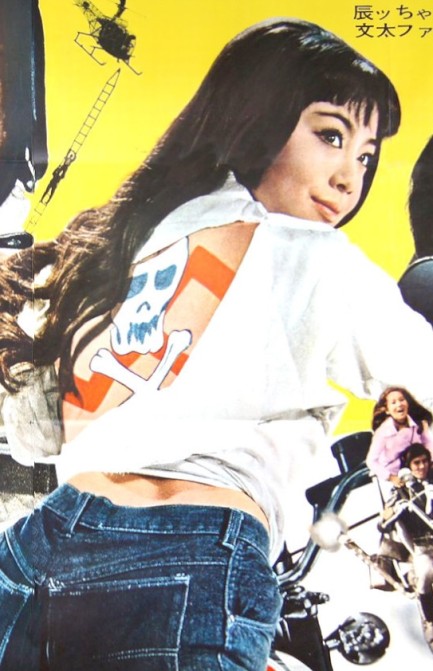
 She's a woman completely without restraint. 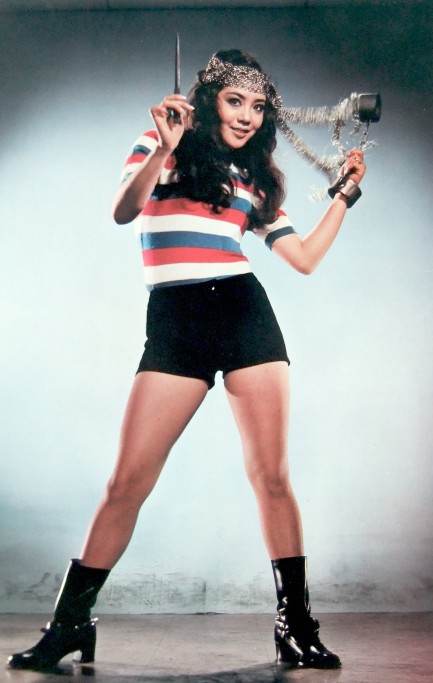
We bet you didn't notice that Japanese actress Reiko Oshida is swinging handcuffs in a circle. We understand. You'd tend to notice other elements of the photo first, like the knife, the boots, the shorts, or the stripes. This promo image was made for her 1971 pinky violence actioner Delinquent Girl Boss: Worthless To Confess, which was originally titled Zubekô banchô: zange no neuchi mo nai. A similar pose was used on the movie's poster, which you can see here. And if you're very interested, you can see alternate posters here and here, and Oshida with her crew of sword maniacs here. She shall return.
 Oshida and her friends run riot in the capital. 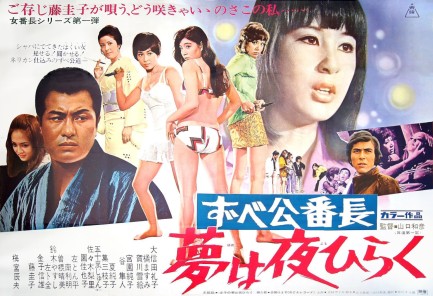 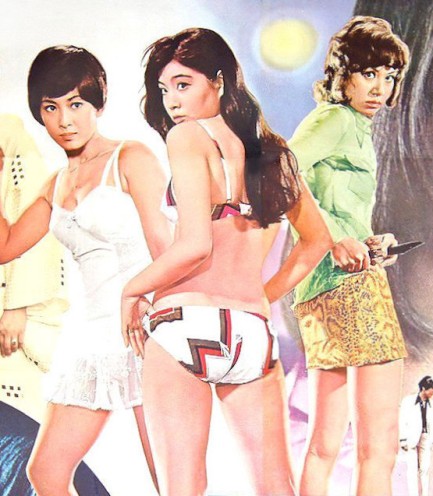
We're sticking with Japanese posters today. Here's one for the 1970 pinky violence flick Zubekô banchô: yume wa yoru hiraku, aka Tokyo Bad Girls, aka Delinquent Girl Boss: Blossoming Night Dreams. We showed you two other promos for this film, which were the standard and always fun tateken sizes. This is a rare bo-ekibari.
 We deal in human slaughter. But when the killing business is slow we also hire out to open Champagne bottles at parties. 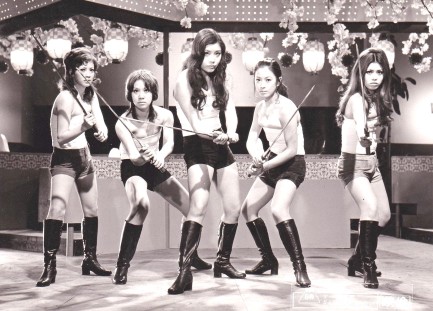 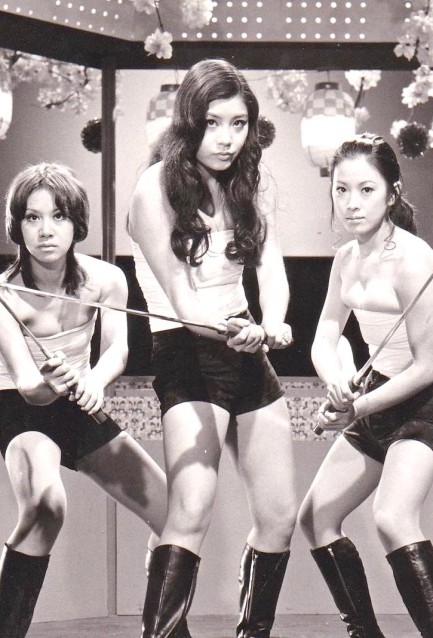
We ran across this menacing promo image online showing the titular quintet of delinquent girl bosses from Delinquent Girl Boss: Worthless To Confess, originally titled Zubekô banchô: zange no neuchi mo nai, and which premiered in Japan today in 1971. Reiko Oshida is front and center, flanked by Yukie Kagawa, Mieko Tsudoi, Masumi Tachibana, and Yumiko Katayama. We've shared plenty of promo art from the film, and discussed what it's about. You can see all that by clicking its keywords below. And if you get the urge to be trendy and open a Champagne bottle with a sword, try to do better than these people.
 Serious trouble just rolled into town. 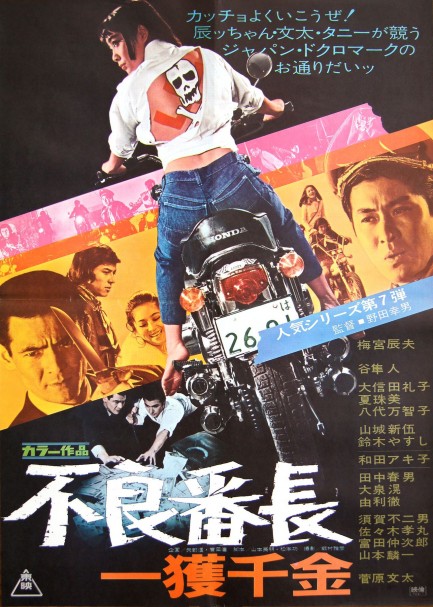
Furyô banchô: Ikkaku senkin, for which you see a killer poster above, was known in English as Wolves of the City: Fast Money, or sometimes Wolves of the City: Instant Fortune. It starred Tatsuo Umemiya, Reiko Oshida, and Bunta Sugawara, and we hear it's good, but we weren't able to find it to watch. We may circle back to it, though, because we located more promo art Toei Company made for it—for example the cool photos of Umemiya and Oshida you see below. You notice the swastika tattoo on Oshida's back? We've mentioned before that the symbol's usage predates its appropriation by Nazi Germany, and has different meanings in Japan. However, in this case we suspect those meanings—good luck, eternity, etc.—have been set aside and the filmmakers meant to use the symbol's association with Nazis to suggest rebellion or lawlessness. If asked, they may have claimed they weren't, but they'd have been messing with people's heads in the same way as the Prussian cross in this post was meant to. But we won't know until we watch the film. We'll keep the rest of our promo material in reserve in case our search is successful. Furyô banchô Ikkaku senkin premiered in Japan today in 1970. 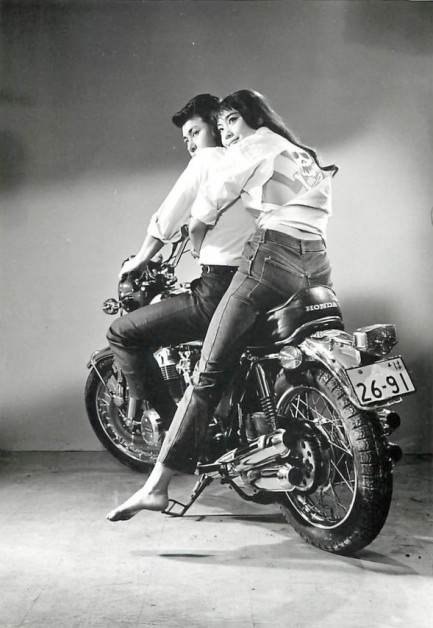 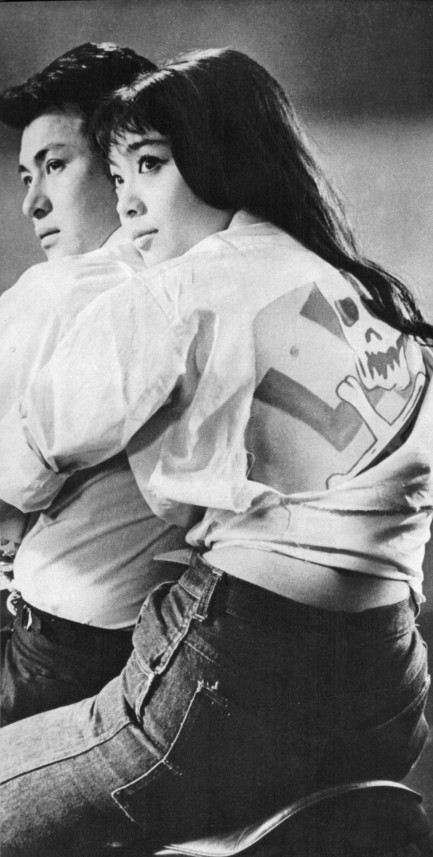 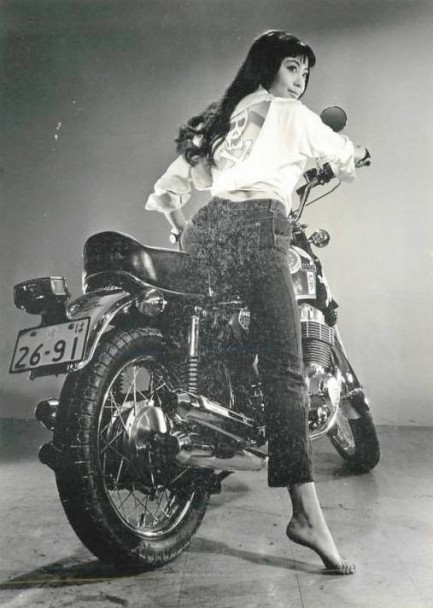
 The Zu animals break loose and Tokyo is never the same. 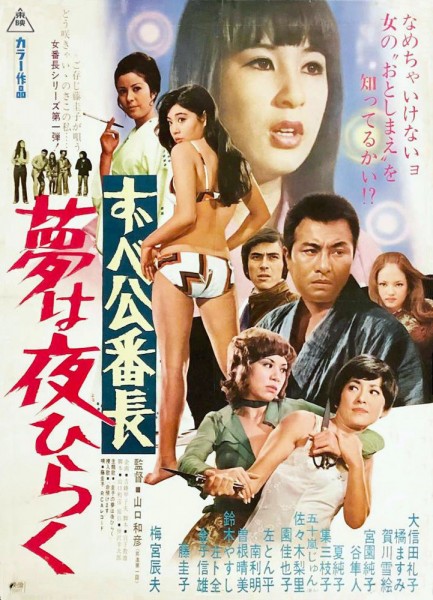
Above is a promo poster for Toei Company's pinky violence hit Zubekô banchô: yume wa yoru hiraku, aka Tokyo Bad Girls, aka Delinquent Girl Boss: Blossoming Night Dreams, which premiered in Japan today in 1970. We already talked about the movie years back and showed you the tateken sized promo poster. Because we had this second piece of art, today we decided to be completist. Reiko Oshida and Keiko Fuji are still the main graphic elements, but some of the other bits have been rearranged. You can see the first piece, and also read about the movie, at this link.
 Oshida shows how to wield authority with flair. 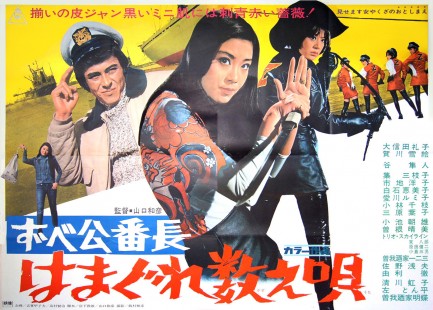
We have another bo-ekibari style Japanese poster today, the rare two-piece horizontal variety that you don't see many of—except on Pulp Intl. This was made for Zubeko banchô: hamagure kazoe uta, aka Delinquent Girl Boss: Ballad of Yokohama Hoods, which premiered in Japan today in 1971 and starred Reiko Oshida and her katana, which is a useful motivational tool for management types. We shared another poster for the movie several years ago, which you can see here, and if you're interested in bo-ekibari promos, we've posted some fun ones here, here, here, here, and here.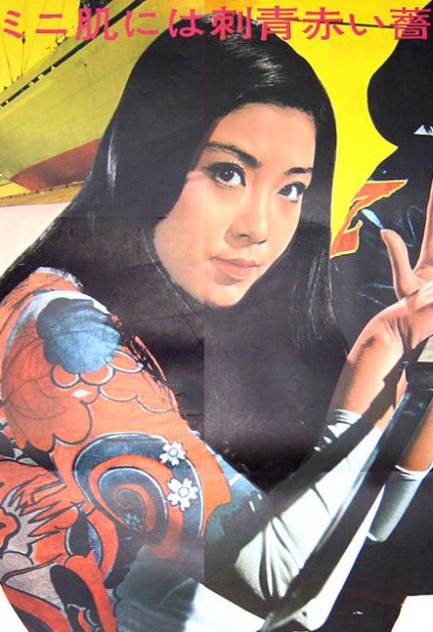
 Operating at a whole new delinquency. 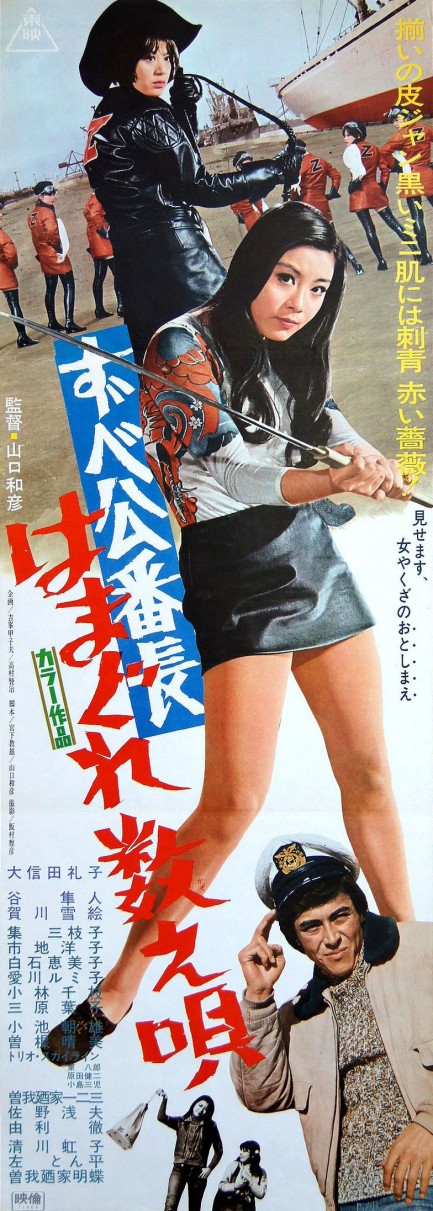 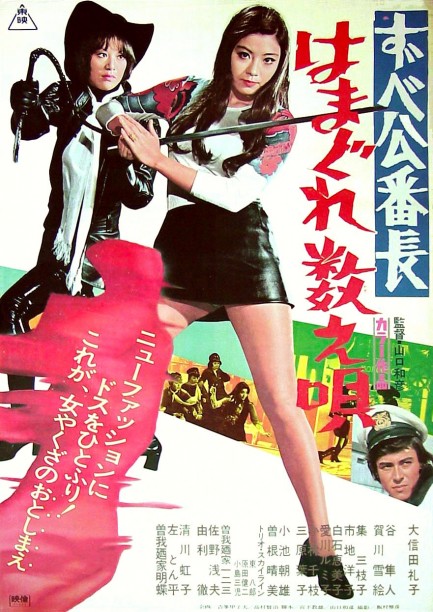
Above are two posters for Zubeko banchô: hamagure kazoe uta, aka Delinquent Girl Boss: Ballad of Yokohama Hoods, third in the Delinquent Girl Boss series, with Reiko Oshida reprising her role as the ass kicking Rika Kageyama. We managed to track down a copy of this and took a gander. It's similar to other entries, with Oshida going from the frying pan to the fire—or more literally, from reform school to the mean streets, as shortly after arriving in Yokohama she gets tangled up in girl biker and organized crime weirdness. She proves her mettle to the girls, then sets about causing trouble for the boys. All this is wrapped around a subplot involving a deserter from the U.S. army. 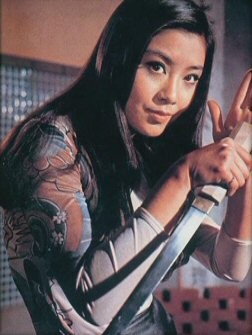 One distinguishing aspect of Yokohama Hoods is that sex and nudity are de-emphasized throughout the proceedings, and we think this actually helps the movie. We're still grappling with the often challenging role of sexual violence in pinku films, trying but not always managing to understand it in its cultural context, so Yokohama Hoods was refreshing for its lack. Other aspects are exactly as you'd anticipate—i.e. a climactic confrontation between the tough good girls and the superbad boys. Director Kazuhiko Yamaguchi goes all out, staging a waterfront fracas featuring speeding motorcycles, blazing machine guns, flashing swords, and more. If everyone actually aimed their guns rather than thrusting them wildly at their targets the fight might have ended sooner, but in any case Yokohama will never be the same. Zubeko banchô: hamagure kazoe uta premiered in Japan today in 1971. One distinguishing aspect of Yokohama Hoods is that sex and nudity are de-emphasized throughout the proceedings, and we think this actually helps the movie. We're still grappling with the often challenging role of sexual violence in pinku films, trying but not always managing to understand it in its cultural context, so Yokohama Hoods was refreshing for its lack. Other aspects are exactly as you'd anticipate—i.e. a climactic confrontation between the tough good girls and the superbad boys. Director Kazuhiko Yamaguchi goes all out, staging a waterfront fracas featuring speeding motorcycles, blazing machine guns, flashing swords, and more. If everyone actually aimed their guns rather than thrusting them wildly at their targets the fight might have ended sooner, but in any case Yokohama will never be the same. Zubeko banchô: hamagure kazoe uta premiered in Japan today in 1971.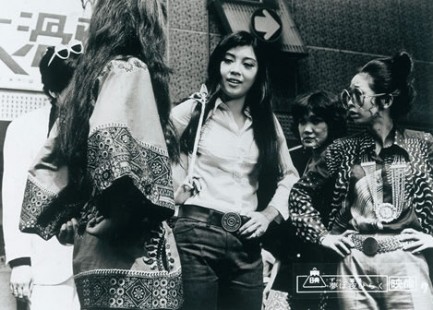 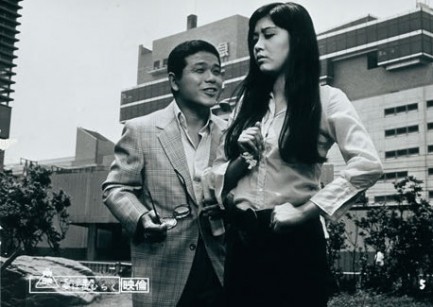
 Oshida and Co. may have been to reform school but once a boss always a boss. 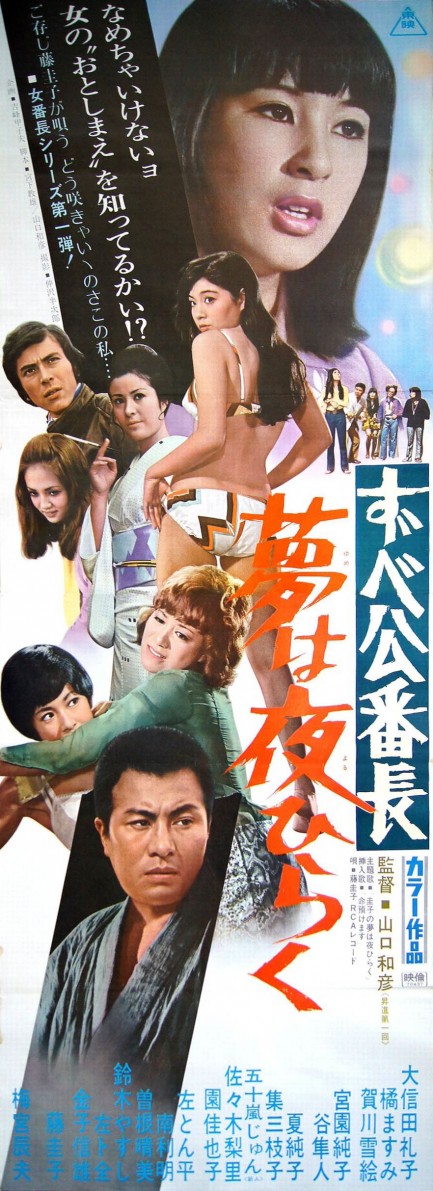
First film in what would become the successful Zubekô banchô series, Zubekô banchô: yume wa yoru hiraku, aka Delinquent Girl Boss: Blossoming Night Dreams, aka Tokyo Bad Girls stars Reiko Oshida as a parolee from a reform school who takes a job in a Shinjuku hotspot called Bar Murasaki, but finds walking the straight and narrow a difficult ambition to fulfill. As usual in these pinku films set in and around nightclubs, a criminal syndicate wants to take over, which means she's soon stuck between a resistant owner and an insistent Yakuza. Some girls she knows from reform school have also found spots at the club, and in addition to Yakuza problems, Oshida finds herself drawn into the issues of her friends.
But it's good they're around, these girl delinquents, because when the climactic brawl with the villains happens, Oshida will need loyal friends at her side. On the whole Blossoming Night Dreams is tamer than later entires in the Delinquent Girl Boss series, but considering the sexual violence that began to appear, most would consider that a good thing. Of course, it's always important to remember that these films are counterculture in character, replacing the subservient women of previous eras with badass riot girls who always took violent revenge upon men who wronged them. The formula was both exploitative and pro feminist, with the sexploitation putting rear ends in the seats, whereupon the progressive message was hammered home.
Anyway, moving on to the poster, you may notice that, by a quirk of design, Oshida, star of the film, does not appear to be star of the promo art. The topmost position is given to Keiko Fuji. But a closer look reveals that Oshida gets a full body shot in the center foreground of the art, while Fuji is layered behind. It's still unusual that Fuji is placed where she is, though. While she plays Bar Murasaki's headlining performer, she has far less screen time most of the other castmembers. But she's good in her role, Oshida's excellent, Masumi Tachibana, Yukie Kagawa, and the rest of the troupe are having fun, and everyone deserves credit for making the movie well worth a screening. Zubekô banchô: yume wa yoru hiraku opened today in 1970. 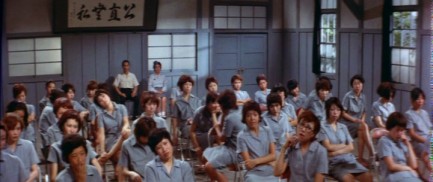 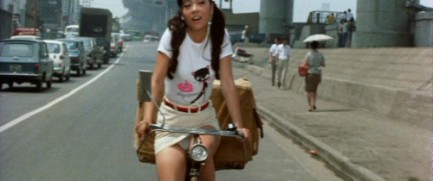 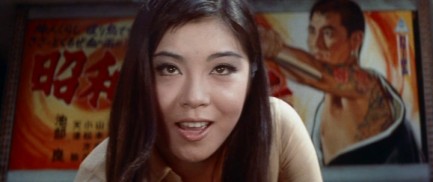 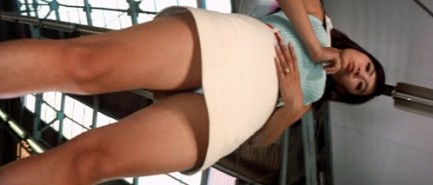 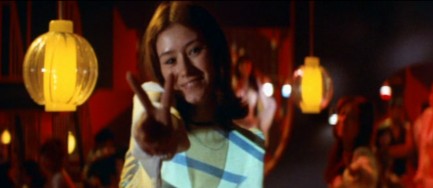 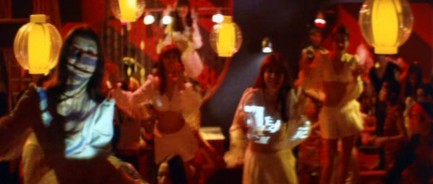 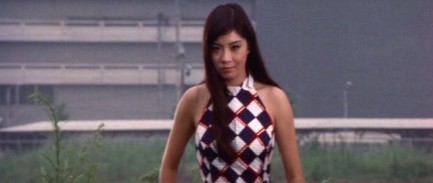 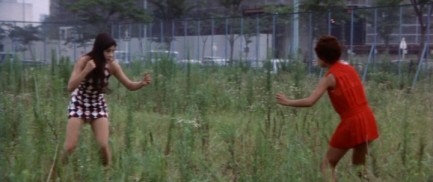 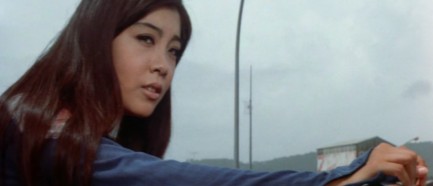 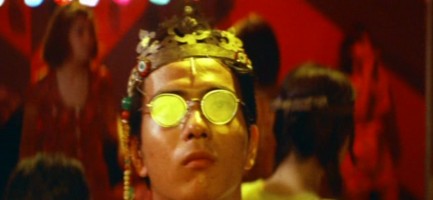 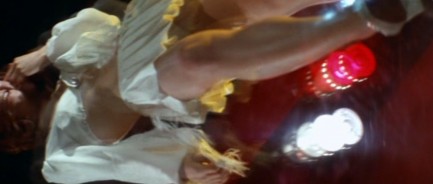 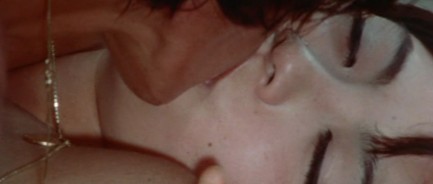 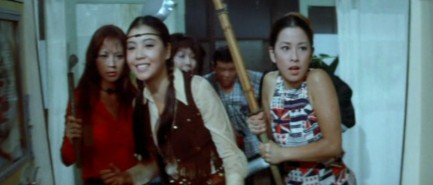

|
 |

The headlines that mattered yesteryear.
2003—Hope Dies
Film legend Bob Hope dies of pneumonia two months after celebrating his 100th birthday. 1945—Churchill Given the Sack
In spite of admiring Winston Churchill as a great wartime leader, Britons elect
Clement Attlee the nation's new prime minister in a sweeping victory for the Labour Party over the Conservatives. 1952—Evita Peron Dies
Eva Duarte de Peron, aka Evita, wife of the president of the Argentine Republic, dies from cancer at age 33. Evita had brought the working classes into a position of political power never witnessed before, but was hated by the nation's powerful military class. She is lain to rest in Milan, Italy in a secret grave under a nun's name, but is eventually returned to Argentina for reburial beside her husband in 1974. 1943—Mussolini Calls It Quits
Italian dictator Benito Mussolini steps down as head of the armed forces and the government. It soon becomes clear that Il Duce did not relinquish power voluntarily, but was forced to resign after former Fascist colleagues turned against him. He is later installed by Germany as leader of the Italian Social Republic in the north of the country, but is killed by partisans in 1945.
|

|
|

It's easy. We have an uploader that makes it a snap. Use it to submit your art, text, header, and subhead. Your post can be funny, serious, or anything in between, as long as it's vintage pulp. You'll get a byline and experience the fleeting pride of free authorship. We'll edit your post for typos, but the rest is up to you. Click here to give us your best shot.

|
|






















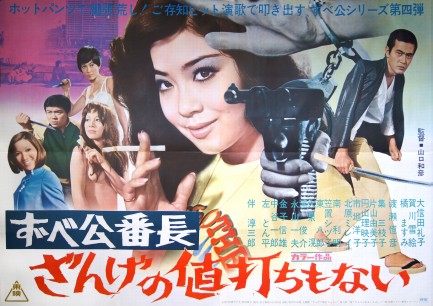
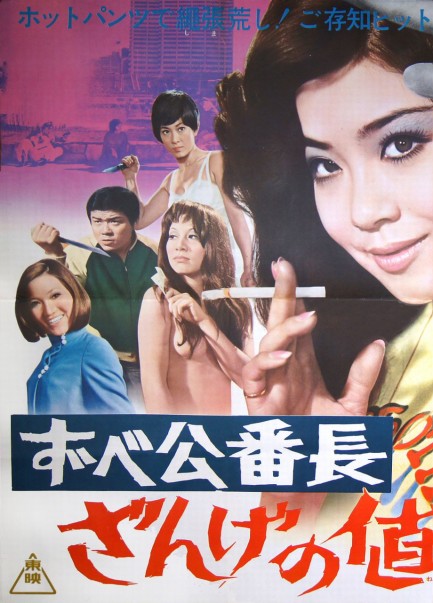
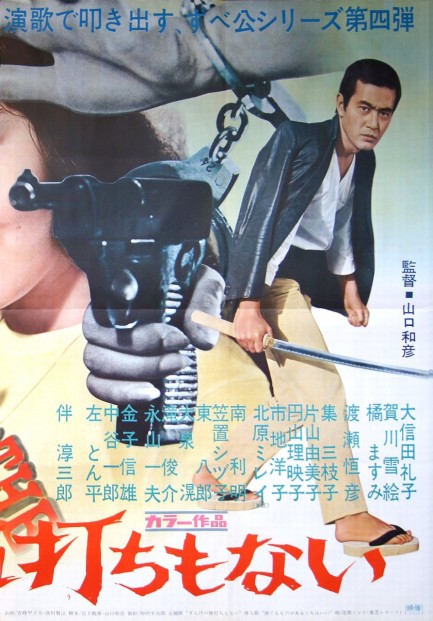



 One distinguishing aspect of Yokohama Hoods is that sex and nudity are de-emphasized throughout the proceedings, and we think this actually helps the movie. We're still grappling with the often challenging role of sexual violence in pinku films, trying but not always managing to understand it in its cultural context, so Yokohama Hoods was refreshing for its lack. Other aspects are exactly as you'd anticipate—i.e. a climactic confrontation between the tough good girls and the superbad boys. Director Kazuhiko Yamaguchi goes all out, staging a waterfront fracas featuring speeding motorcycles, blazing machine guns, flashing swords, and more. If everyone actually aimed their guns rather than thrusting them wildly at their targets the fight might have ended sooner, but in any case Yokohama will never be the same. Zubeko banchô: hamagure kazoe uta premiered in Japan today in 1971.
One distinguishing aspect of Yokohama Hoods is that sex and nudity are de-emphasized throughout the proceedings, and we think this actually helps the movie. We're still grappling with the often challenging role of sexual violence in pinku films, trying but not always managing to understand it in its cultural context, so Yokohama Hoods was refreshing for its lack. Other aspects are exactly as you'd anticipate—i.e. a climactic confrontation between the tough good girls and the superbad boys. Director Kazuhiko Yamaguchi goes all out, staging a waterfront fracas featuring speeding motorcycles, blazing machine guns, flashing swords, and more. If everyone actually aimed their guns rather than thrusting them wildly at their targets the fight might have ended sooner, but in any case Yokohama will never be the same. Zubeko banchô: hamagure kazoe uta premiered in Japan today in 1971.





















































































